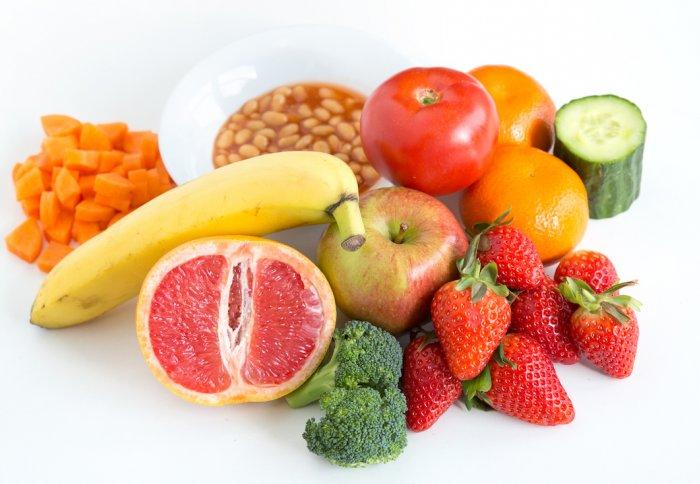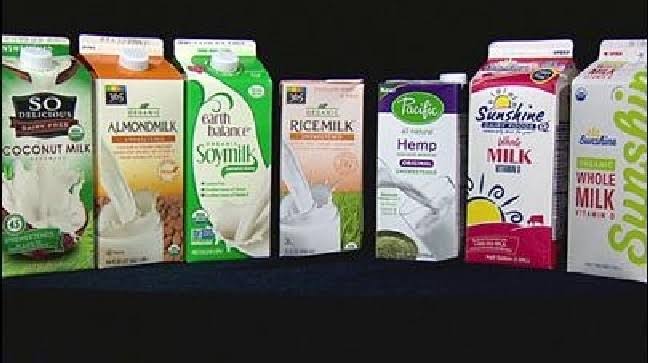15 Major Reasons to Eat More Fruits and Vegetables – Eating more fruits and vegetables is one of the best things you can do for your health. Fruits and veggies contain important vitamins, minerals, antioxidants, and fiber that can help prevent chronic diseases and promote overall wellbeing. Despite this, most people do not get the recommended daily amounts of produce. On average, adults in the U.S. eat only about 1-2 servings per day, far below the recommendation of 4-5 servings. Adding more produce to your diet can seem challenging, but it does not have to be an all-or-nothing approach. Making small changes over time can increase your fruit and vegetable intake and improve nutrition. Here are 15 major reasons why you should strive to eat more fruits and vegetables.
The 15 Major Reasons to Eat More Fruits and Vegetables Are:

1. Reduce Risk of Heart Disease and Stroke
Fruits and vegetables are full of nutrients and antioxidants that support heart health. They contain potassium which helps control blood pressure. The fiber keeps cholesterol levels in check. Vitamin C, beta-carotene, and other antioxidants reduce inflammation and oxidative stress which are risk factors for heart disease and stroke. Eating more produce may substantially reduce these risks.15 Major Reasons to Eat More Fruits and Vegetables
Read Also: Top 15 Best Foods to Boost Your Brain and Memory
2. Prevent Some Types of Cancer
A diet rich in fruits and vegetables may help prevent some common cancers. Plant foods contain beneficial compounds like flavonoids, carotenoids, vitamins, and more. These have antioxidant effects and may suppress tumor growth. In particular, eating more produce appears protective against cancers of the mouth, pharynx, larynx, esophageal, stomach, and lung.NYSC Portal
3. Help Manage Diabetes
For those with diabetes or at risk of developing it, increasing fruit and vegetable intake is a must. The fiber helps regulate blood sugar levels and the antioxidants help prevent cell damage. Eating a variety of colorful produce provides vitamins, minerals, and phytochemicals that are beneficial for diabetes management. The American Diabetes Association recommends 4-5 servings per day minimum.Information guide Nigeria
4. Lose Weight
To lose weight in a healthy way, fruits and vegetables are your best friends. They are low in calories and high in nutrients and fiber which helps you feel full on fewer calories. Filling up on produce can displace higher calorie foods and make it easier to cut calories. The fiber slows digestion and helps control blood sugar and hunger. Eating more fruits and veggies may promote weight loss, especially when paired with increased physical activity.
Read Also: Top 15 Performance-Based Acting Programs in Nigeria
5. Improve Gut Health
The fiber and nutrients in produce nourish beneficial gut bacteria which supports digestive health. The fiber acts as a prebiotic feeding healthy bacteria like Bifidobacteria and Lactobacilli. These bacteria produce beneficial byproducts and prevent overgrowth of harmful microbes. This helps maintain the normal microbiome balance. Better gut health promotes overall wellbeing and may lower risk of gastrointestinal conditions like colon cancer.
6. Strengthen Immune System
Fruits and vegetables provide many micronutrients that are necessary for proper immune function like vitamin C, beta-carotene, folate, and more. Deficiencies in any of these can negatively impact the immune system. Eating adequate produce keeps levels topped off and allows the immune system to work its best.
7. Promote Regularity
Constipation is a common annoyance, but getting enough fiber and water from fruits and vegetables can help maintain regularity. Fiber normalizes bowel movements by adding bulk and softening stool. This helps waste move smoothly through the intestines and colon. Some fruits particularly effective for relief of constipation include apples, pears, plums, peaches, apricots, berries, figs, and citrus fruits.Romantic love message
8. Improve Skin Health
A clear complexion starts from the inside out. Fruits and vegetables provide antioxidants like vitamin C, beta carotene, and selenium which protect skin from sun damage and pollution. They also have hydrating and anti-inflammatory effects. Getting your daily produce helps cells regenerate and may give a healthy glow. Eating a diverse mix provides the best variety of skin-enhancing nutrients.
Read Also: 15 Best Kid-Friendly Things to Do in Abuja
9. Reduce Risk of Stroke
A diet high in fruits and vegetables can help reduce the risk of stroke. Many studies have found that people who eat more produce have significantly lower rates of stroke. Experts believe this is due to the blood pressure lowering effects of potassium, vitamin C, fiber, and other nutrients. The combination of antioxidants and anti-inflammatory compounds also protect blood vessels in the brain.Good morning My Love Message
10. Help Lower Blood Pressure
As mentioned, the natural minerals and nutrients found in produce help control blood pressure. Potassium counters the effects of sodium and helps relax blood vessel walls. Vitamin C protects against stiffening of arteries. The fiber also prevents spikes in blood sugar which can increase blood pressure. The DASH diet which emphasizes fruits, veggies, and low-fat dairy has been shown to substantially reduce high blood pressure.
11. Improve Bone Health
Produce contains many bone-supporting nutrients like vitamin K, magnesium, potassium, and antioxidants. These help improve calcium absorption and bone turnover, leading to improved bone density over time. Getting adequate produce, along with regular exercise, can help prevent osteoporosis. Try to include plenty of broccoli, spinach, sweet potatoes, oranges, and berries for bone health.
12. Reduce Risk of Cataracts
Eating adequate fruits and vegetables may help prevent cataracts, which cloud the lenses of the eyes. Produce provides antioxidants like vitamin C, beta-carotene, lutein, and zeaxanthin which help protect the eyes from sun damage. They also contain vitamin A precursors that are essential for eye health. Getting your 5+ servings per day may delay cataract development.
Read Also: 15 Best Stoning Machine in Nigeria
13. Improve Mood and Mental Health
A diet with plenty of produce can help boost your mood and mental wellbeing. Fruits and vegetables contain B-vitamins, magnesium, omega-3 fatty acids, tryptophan, and complex carbs which support the production of serotonin and other mood-regulating neurotransmitters. Getting more fruits and veggies and less processed food may be helpful for reducing anxiety and depression.JAMB portal
14. Prevent Cellular Damage from Aging
The nutrients in produce help cells regenerate and ward off damage that naturally occurs with aging. Getting adequate vitamin C and E, beta-carotene, selenium, and other antioxidants acts like an insurance policy to protect cells against wear and tear. They help prevent mitochondrial breakdown which can speed aging. Slowing this cellular damage may promote longevity.
15. Save Money
Lastly, fruits and vegetables are affordable! Produce is relatively low in cost per serving compared to many other foods. Buying fruits and veggies, especially what is in season and on sale, can help cut your grocery spending. Canned and frozen options provide inexpensive alternatives when fresh produce is not practical or in your budget. Eating more at home with fruits and veggies is healthy for you and your wallet.
Read Also: Top 15 Health Benefits of Eating Cherries
Conclusion
The bottom line is that fruits and vegetables provide tremendous short and long-term health benefits that make them a foundational part of a nutritious diet. They are packed with essential vitamins, minerals, fiber, and phytochemicals but relatively low in calories. Eating a diverse array of colorful produce each day supports almost every system in the body. For optimal health, adults should strive for at least 4-5 servings per day. Incorporating more fruits and veggies is easier than you may think. The key is gradually increasing your intake through simple diet changes. Your health is worth it!
Check JAMB Result
Check and Confirm: How much is Dollar to Naira





